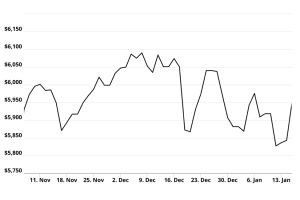
After a surprising ousting and a brief power struggle, the former leader of ChatGPT-maker OpenAI, Sam Altman is set to return as CEO. The company announced an agreement for his return and introduced a new board, headed by ex-Salesforce co-CEO Bret Taylor.
Following the controversial firing of Sam Altman, former CEO of OpenAI, the company faced internal turmoil and external pressure from investors due to the lack of specific reasons given by the previous board for Altman’s removal. This incident highlighted the divergence of opinions within OpenAI on the safety risks associated with advanced AI.
Microsoft, a major investor in OpenAI, swiftly hired Altman and another co-founder, Greg Brockman. This move triggered a potential mass departure of employees, with many calling for the board’s resignation and Altman’s reinstatement. One board member, Ilya Sutskever, expressed regret and joined the demand for the board’s resignation.
That said, Altman’s unexpected return to OpenAI has ignited a flurry of speculation and anticipation within the tech and AI communities. As the industry braces for this notable shift in leadership, AI predictions are emerging regarding the potential repercussions and developments that may unfold.
Here are three key insights that artificial intelligence forecasts for OpenAI following Sam Altman’s reinstatement. I asked Bard to provide insights, and here’s what it came up with.
Enhanced Scrutiny of OpenAI’s Governance
The tumultuous events surrounding Sam Altman’s dismissal and subsequent reinstatement as CEO of OpenAI have cast a spotlight on the company’s governance structure and decision-making processes. The abrupt and controversial nature of Altman’s termination, coupled with the swift reversal of this decision, has raised questions about the stability and transparency of OpenAI’s leadership.
The board’s decision to remove Altman, reportedly due to concerns about his communication with the board, was met with fierce opposition from employees, investors, and the broader AI community. Many expressed disbelief that Altman, a founding member and visionary leader of OpenAI, could be ousted so abruptly. The subsequent decision to reinstate Altman just days later further blurred the lines of authority and raised questions about the board’s decision-making process.
These events have undoubtedly damaged OpenAI’s reputation and have likely eroded trust in its leadership. The company now faces increased scrutiny from both internal and external stakeholders, who will demand greater clarity and accountability from the board.
OpenAI’s reputation has been tarnished, but it is not too late for the company to regain trust and demonstrate its commitment to responsible AI development. By addressing the governance concerns that have been raised and fostering a more transparent and accountable leadership structure, OpenAI can position itself to continue its important work in the field of artificial intelligence.
Changes to OpenAI’s Mission and Goals
The recent events at OpenAI, particularly the dismissal and subsequent reinstatement of CEO Sam Altman, have raised questions about the company’s future direction and the potential for changes to its mission and goals.
Altman has been a vocal proponent of the use of artificial intelligence for good, and he has been instrumental in shaping OpenAI’s mission of ensuring that AI benefits all of humanity. However, his departure and subsequent return could signal a shift in the company’s priorities, particularly if the board feels that Altman was too focused on long-term goals at the expense of short-term concerns.
One possibility is that OpenAI could place a greater emphasis on commercializing its technology. The company has already made some moves in this direction, such as launching a for-profit subsidiary in 2019. However, Altman has been a strong advocate for open collaboration and the sharing of AI research, and it is unclear whether the board would be willing to fully embrace a commercial model.
Another possibility is that OpenAI could shift its focus towards developing AI that can be used to solve specific problems in the near term. This could include areas such as healthcare, climate change, or education. However, this shift could also come at the expense of OpenAI’s long-term goal of developing artificial general intelligence (AGI), a hypothetical type of AI that would be capable of outperforming humans in all intellectual tasks.
The decision of whether or not to change OpenAI’s mission and goals will be a difficult one for the board. On the one hand, the company needs to be able to generate revenue in order to sustain itself in the long term. On the other hand, it also needs to stay true to its mission of ensuring that AI benefits all of humanity.
Erosion of Trust and Confidence in OpenAI
The recent turmoil at OpenAI, characterized by CEO Sam Altman’s abrupt dismissal and subsequent reinstatement, has undoubtedly tarnished the company’s reputation and shaken the confidence of its stakeholders. This loss of trust could have far-reaching consequences for OpenAI’s future, hindering its ability to attract talent, secure funding, and maintain its position as a leading AI research organization.
Moreover, the events at OpenAI have undoubtedly created uncertainty and instability among employees. The abrupt removal of a respected and visionary leader like Sam Altman, followed by the equally hasty decision to reinstate him, has sent a message of indecisiveness and poor communication from the board. This could lead to a loss of morale, reduced productivity, and even an exodus of top talent.
Furthermore, potential new hires may be hesitant to join an organization with a history of internal turmoil and lack clear leadership. OpenAI’s ability to attract and retain the best and brightest minds in the AI field is crucial for its continued success, but recent events have made the company less attractive to prospective employees.
OpenAI’s financial stability is also at risk due to the loss of trust and confidence among investors. The company relies on external funding to support its research and development efforts, but the recent events have raised concerns about OpenAI’s ability to make sound decisions and manage its affairs effectively. Investors may be more cautious about committing capital to OpenAI until they see a clear path forward and a demonstration of stability from the board.
Moreover, the loss of trust could also affect OpenAI’s partnerships with other organizations in the AI research community. Collaborations with universities, research institutions, and other companies often depend on mutual trust and respect. The recent events have called into question OpenAI’s reliability as a partner, making it more difficult to form and maintain these crucial alliances.
Why The Firing, And Rehiring, Matters
Altman’s sudden departure from OpenAI, which was attributed to his lack of consistent honesty in communicating with the board, stirred uncertainty and trust concerns in the AI community. The incident highlighted divergent views on AI safety among OpenAI’s stakeholders.
Experts argue that recent events underscore the need for government-led AI regulation, emphasizing that corporate governance can be overshadowed by corporate dynamics, even with good intentions. They stress the importance of rules enforced by regulators for AI safety and trust.
I tend to agree, and we’ll have to see if AI is ultimately correct in terms of its predictions about Sam Altman.
On the date of publication, Chris MacDonald did not have (either directly or indirectly) any positions in the securities mentioned in this article. The opinions expressed in this article are those of the writer, subject to the InvestorPlace.com Publishing Guidelines.




